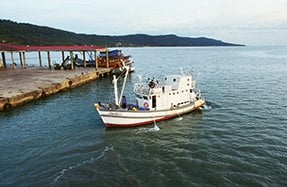Addressing human rights impacts
Our commitment: Assess and address human rights impacts across our business activities

Tackling our salient issues
In order to ensure that we uphold our corporate responsibility to respect human rights in line with the UN Guiding Principles on Business and Human Rights, we must focus on where we have greatest potential impact. We have identified 11 salient human rights issues and developed action plans for each. We define salient issues as those human rights at risk of the most severe negative impact on rights holders through the company’s activities and business relationships.
Progress against our objectives
| Our objectives | Our results |
|
By 2017: Strengthen human rights mainstreaming into existing standards, audit protocols and due diligence procedures, in particular for: our own facilities, including greenfield and brownfield projects; local communities; our business partners, including local distributors, co-manufacturers, joint ventures, and mergers and acquisitions. By 2018: Carry out six human rights impact assessments in our upstream supply chain. By 2019: Have a functioning governance structure in place in all markets that looks after human rights risks and opportunities. By 2020: Train all Nestlé employees on human rights |
In 2017, we continued to embed human rights across our business activities. However, given the scale and complexity of the work at hand, we were not able to fully complete all elements of our 2017 commitment. We will continue to work on embedding human rights, with particular focus on our supply chains, in 2018 and beyond. Our CARE audit programme has been reviewed/updated, and a new version piloted. ‘Promoting and respecting human rights’, as part of our re-articulated corporate purpose, was communicated to all employees. By end of 2017, we carried out our first HRIA in our upstream palm oil supply chain, in Indonesia focused on labour rights. Taking this work into our supply chains has increased its scale and complexity, so we are likely to carry out a limited number of HRIA's in our upstream supply chain by 2018. By the end of 2017, we achieved our outstanding 2015 objective to ensure that all 13 FTSE4Good Countries of Concern where we operate are covered by a human rights impact assessment (with the exception of Saudi Arabia and joint ventures in China). By end-2017, we had conducted training for in-house legal counsel across the head office, three Zones and markets. An update to our human rights e-learning module for all employees is currently being developed and rolled out. We are also developing tailored training for business functions with specific exposure to human rights risk or responsibility for managing our performance. |
Our salient issues
We have identified a list of 11 salient issues that span our value chain. These are the human rights at risk of the most severe negative impacts on stakeholders through the company’s activities and business relationships. They are therefore the material issues we most need to address and are:
- Access to grievance mechanisms
- Access to water and sanitation
- Child labour
- Data protection and privacy
- Forced labour
- Freedom of association and collective bargaining
- Land acquisition
- Living wage
- Safety and health
- Workers’ accommodation and access to basic services
- Working time.
Our table (pdf, 80Kb) shows the 11 salient issues identified and the stakeholders they affect .
Mapping against the Sustainable Development Goals
We commissioned the Danish Institute of Human Rights to map our salient issues against the UN Sustainability Development Goals (SDGs), to show exactly how our work is addressing these issues. Our table shows the results; the SDGs are mapped against each salient issue, while the numbers indicate the relevant SDG target.
Our Human Rights Due Diligence Programme
Our Human Rights Due Diligence Programme (HRDDP) is the governance mechanism that is used to manage our salient issues. Through the HRDDP, we implement our actions to assess, prevent and address potential human rights impacts, improve our performance on the ground, and gather data with which to measure our performance.
The HRDDP has eight operational pillars:
| Pillar | Activity |
|
Policy commitments Stakeholder engagement Training and awareness Risk evaluation Impact assessment Governance Partnerships Monitoring and reporting |
We mainstream human rights into corporate policies and commitments to make them operational. We engage with key stakeholders to get global and local insights into our human rights performance. We develop the awareness and the skills of our employees in order to make their work-related decisions and actions align with human rights. We evaluate human rights-related risks in order to manage them proactively. We assess human rights impacts in our business activities to address them effectively. We establish clear roles and responsibilities at different levels of the company. Nestlé’s top management commitment and leadership on human rights is reflected at different stages of the company. We partner with leading organisations to improve our human rights performance on the ground and deliver on our commitments. We integrate human rights indicators into our management systems to monitor our progress and report on it annually. |



